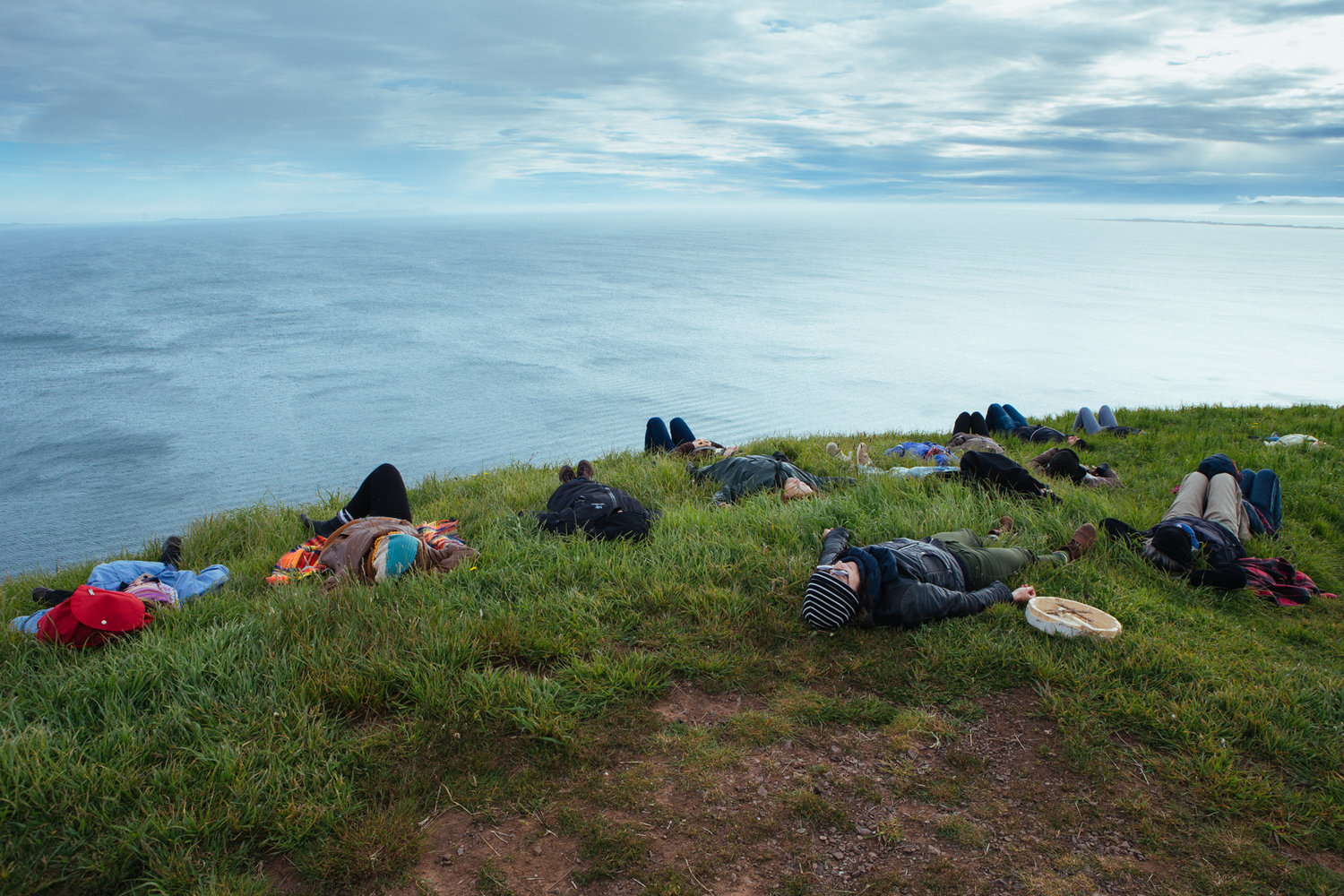2020 Theme: Echolocation
ECHOLOCATION
Curated by Lindsay Dobbin
Echolocation is a biological sonar used by various animals, and even some humans, for spatial orientation. Through emitting sound and listening to how they echo in return, one is able to identify and locate themselves in relation to the environment in real-time. This active phenomenon speaks to relationality and impact, and the cyclical capacity to transmit, listen and receive.
Here in K’jipuktuk, the ancestral and unceded territory of Lnu’k (Mi’kmaq), we are located on the Atlantic Ocean where marine creatures such as whales and dolphins utilize echolocation and songs to navigate and communicate with their water world. Noise pollution and boat traffic is making this communication increasingly difficult, if not impossible, causing health issues, displacement and death for cetaceans ― putting species such as the North Atlantic Right Whale at risk of extinction. This is only one of a myriad of huge ecosystem transformations due to human impact that are threatening life on earth.
The Atlantic Ocean is also the waterway many colonizers travelled across to reach Turtle Island, landing here in Mi'kma'ki over 500 years ago. Prior to colonization, L’nu’k stewarded this place for thousands of years by listening to the land and water and living in a way that was not rooted in ownership or accumulating resources, but in listening to the animacy and wisdom of the natural world and honouring kinship with all beings. Despite the trauma of colonization that continues to this day, these values are still alive within Indigenous communities, and Indigenous peoples are at the forefront of land and water protection throughout the world.
Considering all of the ecological and social injustices at present, what is the role of art in transmitting our impact and collective responsibility as stewards of this land? Can art deepen kinship and communication with the natural world, encourage collaboration and relationships, and imagine a sustainable way forward? How can the land guide us as creators? Our listening? Our actions? How can we embody practices of care, reciprocity and respect for the land and each other through creation?
The Nocturne 2020 curatorial theme echolocation calls upon both Indigenous and Non-Indigenous artists to reflect on these questions in the creation of projects that consider our relationship with the land and water here in K’jipuktuk. While the subject matter of the works should address the environment and our relationship to it, we encourage artists to be inspired by the phenomenon of echolocation as a method of creation ― one rooted in listening and reciprocity with the natural world. How can your project speak to and listen to the land? How can your project be responsive to its location? Though not necessary, we also encourage artists to integrate sound into their projects.
We would love to showcase works that both inspire wonder regarding the beauty and animacy of the natural world and the positive manifestations of our connection as well as works that create space for a deeper understanding of matters related to the environment such as Indigenous knowledge, sovereignty and land/water protection, colonization, borders, land ownership, extractive industries, environmental racism, climate refugees, migrations, social/environmental justice, interspecies relationships, biodiversity (loss), food, personhood rights for animals, land and waterways, endangered species, deforestation, water, ocean issues, pollution, climate change and many others. Works that address the Covid-19 pandemic in terms of it’s connection to the environment and the impact on community (both local and global) are also encouraged.
The works of Nocturne 2020 will create multiple resonance points throughout K’jipuktuk, speaking to each other and the environment. We will listen for echoes of the past, present and future ― deepening understanding and connection, locating ourselves in the present and creatively imagining the future of life on this planet together.


